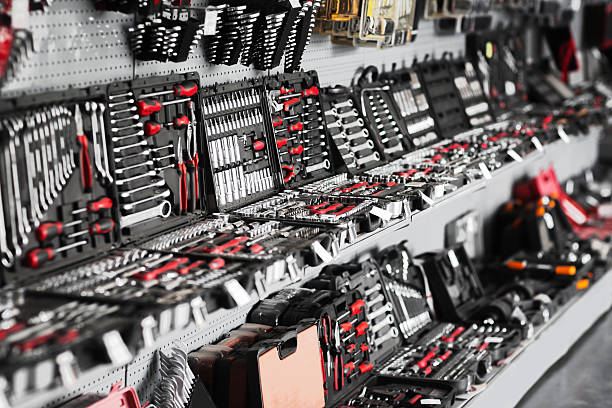Introduction:
Embarking on a do-it-yourself (DIY) project is both empowering and fulfilling. Whether you’re a seasoned DIY enthusiast or just starting out, having the right tools at your disposal can make all the difference between a successful project and a frustrating endeavor. In this comprehensive guide, we’ll delve into the essential tools that every DIY enthusiast should have in their arsenal, with a special focus on the versatile and indispensable tool – pliers.
1. Hammer:
A hammer is a fundamental tool in any DIY toolkit. Its versatility makes it indispensable for a wide range of tasks, from driving nails to assembling furniture. When choosing a hammer, consider factors such as weight, grip comfort, and handle material. A claw hammer, with its dual-purpose head for driving and removing nails, is a popular choice for general-purpose use. For more specialized tasks, such as delicate woodworking or metalworking, you may opt for a smaller or larger hammer with specific features suited to your needs.
2. Screwdriver Set:
A good screwdriver set is essential for various tasks around the house. From tightening loose screws to assembling flat-pack furniture, having a range of screwdrivers in different sizes and types ensures you’re prepared for any job. Consider investing in a set that includes both Phillips and flat-head screwdrivers, as well as interchangeable bits for added versatility. Magnetic tips can also be helpful for holding screws in place, especially in hard-to-reach areas. Look for screwdrivers with comfortable handles and durable construction for long-lasting performance.
3. Tape Measure:
Accurate measurements are crucial in DIY projects, whether you’re hanging shelves or cutting materials to size. A durable tape measure is an indispensable tool that every DIY enthusiast should have in their toolkit. Look for a tape measure with a wide blade for easy readability and a locking mechanism to keep the tape in place when measuring long distances. Metric and imperial measurements should be clearly marked for convenience. Consider investing in a quality tape measure with a durable casing to withstand frequent use in various conditions.
4. Power Drill:
For drilling holes, driving screws, and a multitude of other tasks, a power drill is indispensable. Look for a versatile cordless drill with interchangeable bits for maximum efficiency and convenience. Consider factors such as battery life, torque settings, and chuck size when choosing a drill that suits your needs. A lightweight and ergonomic design can reduce fatigue during extended use, while built-in LED lights can illuminate dimly lit workspaces for improved visibility. Invest in high-quality drill bits and accessories for optimal performance and durability.
5. Level:
Achieving straight lines and accurate angles is essential in many DIY projects, from hanging shelves to installing fixtures. A sturdy spirit level ensures your projects are perfectly aligned and visually appealing. Look for a level with multiple vials for horizontal, vertical, and diagonal measurements, as well as a magnetic base for hands-free use on metal surfaces. Consider investing in a digital level for precise measurements and easy readability. Regularly check and calibrate your level to ensure accurate results and maintain its effectiveness over time.
6. Utility Knife:
A sharp utility knife is indispensable for cutting materials such as cardboard, carpet, and plastic. Whether you’re trimming edges or scoring materials for precise cuts, a quality utility knife is a valuable addition to your toolkit. Look for a knife with a retractable blade for safety and convenience, as well as a comfortable handle for extended use. Consider investing in replacement blades or a knife sharpener to maintain a sharp cutting edge and prevent accidents. Always use caution when handling sharp objects and store your utility knife securely when not in use.
7. Pliers:
Pliers are perhaps one of the most versatile tools in any DIY enthusiast’s arsenal. From gripping and bending to cutting and twisting, pliers are indispensable for a wide range of tasks. Needle-nose pliers are ideal for intricate work, while locking pliers provide a secure grip on stubborn nuts and bolts. When choosing pliers, consider factors such as jaw size, handle comfort, and material strength. Look for pliers with ergonomic handles and precision-machined jaws for optimal performance and durability. Consider investing in a set of pliers with various types and sizes to tackle different tasks with ease. Regularly inspect your pliers for signs of wear and tear, and replace them as needed to ensure safe and efficient operation.
8. Adjustable Spanner:
An adjustable spanner, also known as a crescent wrench, is essential for tightening or loosening nuts and bolts of various sizes. Its adjustable design eliminates the need for multiple wrenches, making it a convenient choice for DIY projects. Look for a spanner with a smooth and sturdy adjusting mechanism, as well as a comfortable grip for easy handling. Consider investing in a set of adjustable spanners in different sizes to accommodate various fasteners. Regularly clean and lubricate your wrench to prevent rust and maintain smooth operation. Store your spanners in a dry and organized manner to prolong their lifespan and ensure they’re readily accessible when needed.
9. Safety Glasses:
Protecting your eyes should be a top priority when engaging in DIY projects. Safety glasses shield your eyes from dust, debris, and flying objects, reducing the risk of injury and ensuring a safe working environment. Look for safety glasses with impact-resistant lenses and wraparound frames for maximum coverage and protection. Consider investing in anti-fog coatings or adjustable temples for added comfort and versatility. Regularly inspect your safety glasses for scratches or damage, and replace them as needed to maintain clear vision and optimal protection. Store your safety glasses in a protective case or pouch when not in use to prevent scratches and maintain their effectiveness over time.
10. Work Gloves:
Last but not least, a good pair of work gloves is essential for protecting your hands during DIY projects. Whether you’re handling rough materials, working with power tools, or performing tasks that require a firm grip, durable work gloves provide comfort and protection. Look for gloves made from high-quality materials such as leather or synthetic fabrics, with reinforced palms and fingertips for added durability. Consider factors such as fit, flexibility, and breathability when choosing gloves that suit your needs. Regularly clean and inspect your gloves for signs of wear and tear, and replace them as needed to ensure continued comfort and protection.
Conclusion:
Equipping yourself with the right tools is essential for tackling DIY projects with confidence and success. From basic hand tools like hammers and screwdrivers to specialized tools like pliers, having a well-stocked toolkit ensures you’re prepared for any task that comes your way. So, whether you’re a DIY novice or a seasoned enthusiast, invest in quality tools and unleash your creativity with confidence.











